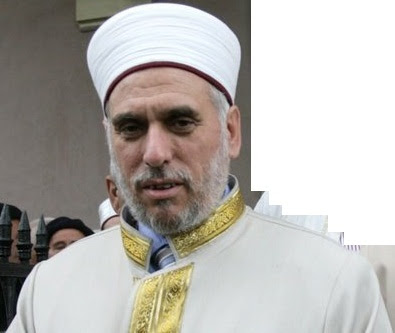| |||
I’m the terrorist?! How am I the terrorist When you have taken my land? Who’s the terrorist? You’re the terrorist! You have taken everything I own While I’m living in my homeland Dam (Arabic for "blood") is a Palestinian hip-hop/rap group. Dam is composed of Tamer Nafer, Suhell Nafer and Mahmoud Jreri, who started performing rap in 1999 and ever since then, their increasing popularity has made them the leading Palestinian rap group. The three were all born in the slums of Lod, a mixed town of Arabs and Jews, 20 km from Jerusalem. Their songs reflect the ongoing Israeli-Palestinian conflict as well as by the Palestinian struggle for freedom and equality. They are also interested in such controversial issues as terrorism, drugs and women's rights. Their music is a dynamic combination of eastern and westerns tunes that use Arabic percussion rhythms, Middle Eastern melodies, and urban hip-hop.
Their uniqueness and growing popularity around the world has recently put them under the spotlight. They have participated in various films and events. The film offers a peek into contemporary life in Israel, the West Bank and Gaza, as well as Middle East hip hop culture inspired by the political rants of US rappers such as Public Enemy, Tupac Shakur, and Eminem. It also features two rap figures, Rapper Mahmoud Shalabi from the village Akka, and female hip hop duo Arapeyat, along with highlighting the work of the group Palestinian Rapperz (PR) among others. Slingshot Hip Hop presents an alternative form of resistance against Israeli occupation and reinforces entrenched Palestinian views of pre-1948 history. "When I visit my family in the West Bank, the situation just gets worse and worse. But these rappers gave me hope," Salloum said in an interview with Agence-France Presse (AFP). In the documentary, the rap artists encounter crushing poverty, difficult cultural boundaries, daily border checkpoints, and other obstacles. "They're also always broke," Salloum said. "It took them five years to make an album, they're struggling financially, and there is no music infrastructure available to them," she said. "Hopefully, that will change." The filmmaker said the different rap groups often bring positive messages to youth, encouraging them to express their anger through rhymes, not violence. By embracing rap "a form of music that is among the most popular around the world, the music of the oppressed and the marginalized, it's easier to sell their message to young Palestinians," Salloum said. Salloum first heard Palestinian hip hop on the radio, the song "Meen Erhabi" or "Who's the Terrorist?" by Dam, which launched the group's stardom in the region. http://www.islamonline.net |
Ръководен принцип: "Ислямът,от началото на неговото възникване до днес в класическите си постановки и на практика строго се придържа към принципа за верска търпимост и отхвърля всяка агресия,която не е породена от агресия.Освен че подчртава общия корен на религиите и почита предходниците на Мухаммад в пророчеството,Ислямът призовава към обич и мирно съжителство между хората,към грижа за децата и родителите,за немощните,сираците,вдовиците,клетниците." Цветан Теофанов,Превод на Свещения Коран
Minaret news,BG
понеделник, януари 05, 2009
Rap, Hip Hop, and the Palestinian Struggle
Абонамент за:
Коментари за публикацията (Atom)










Няма коментари:
Публикуване на коментар